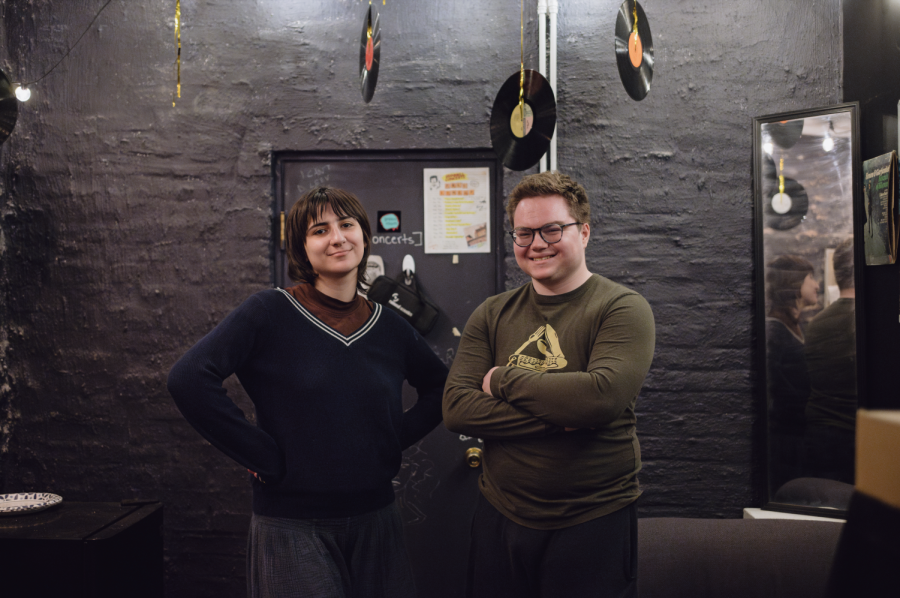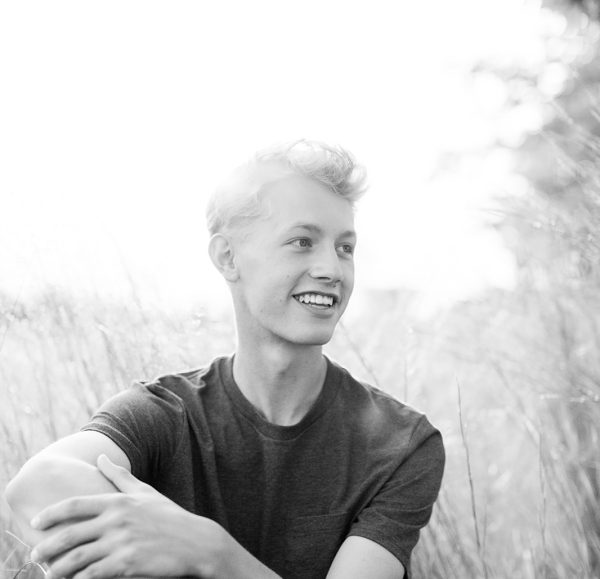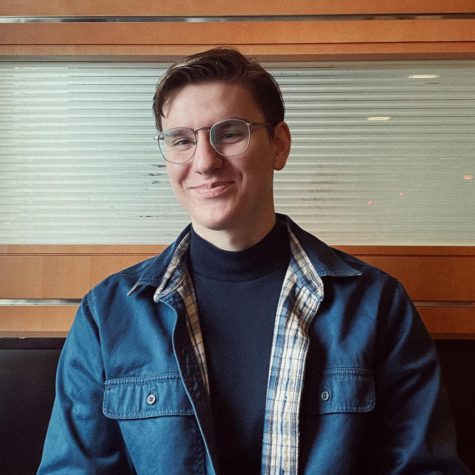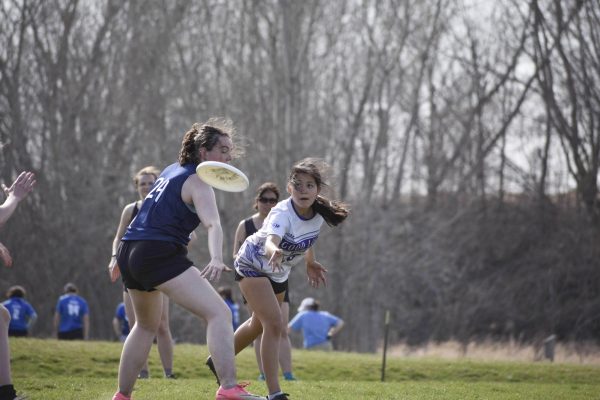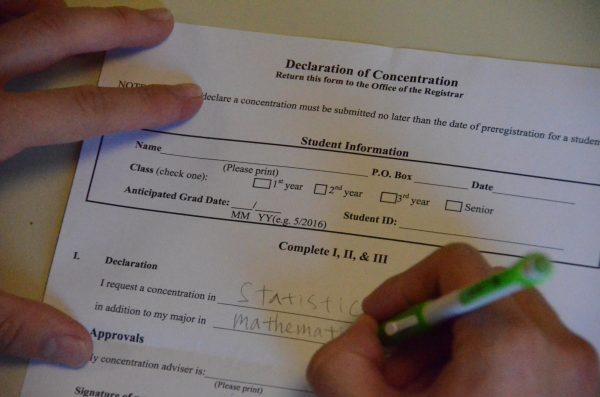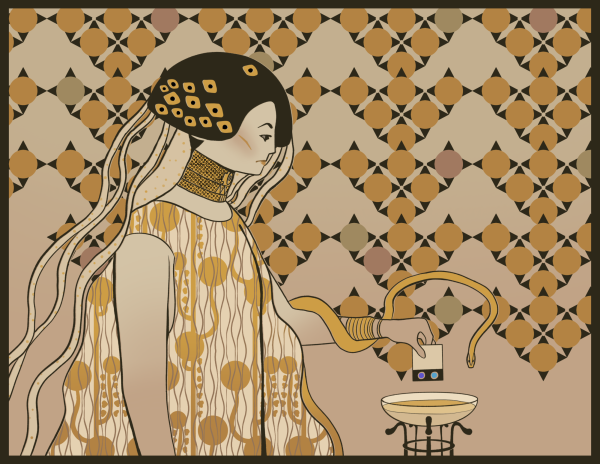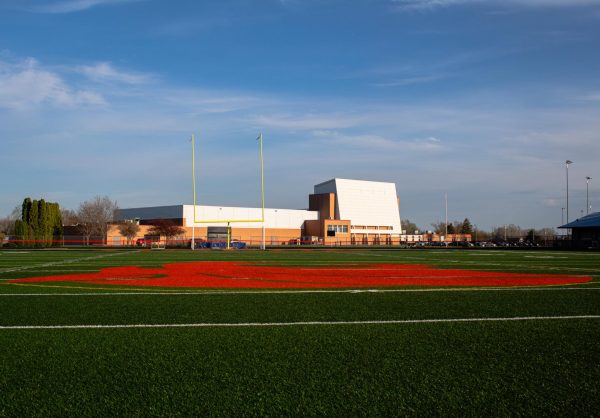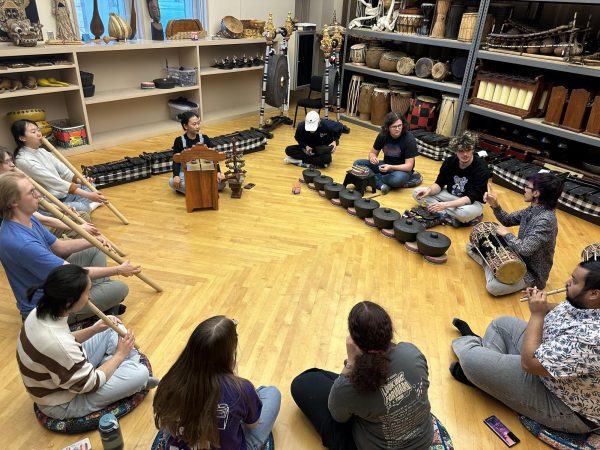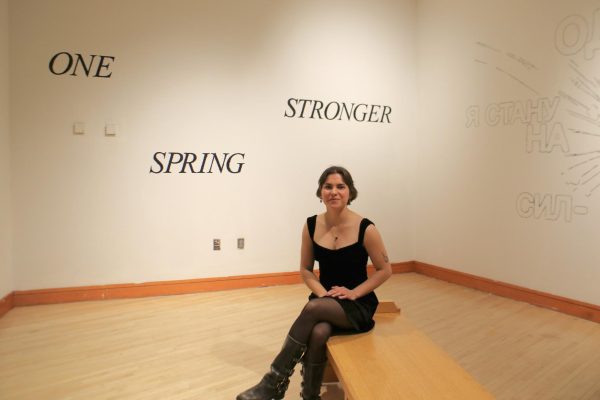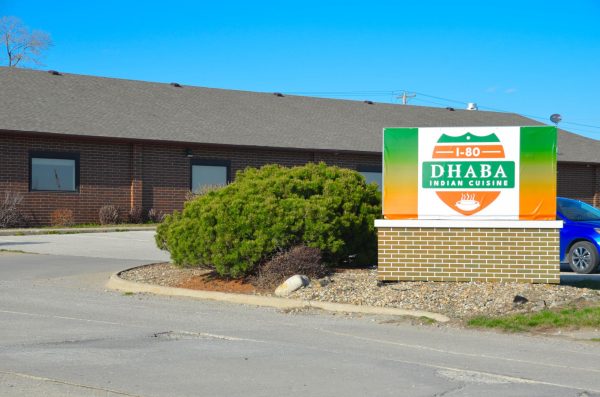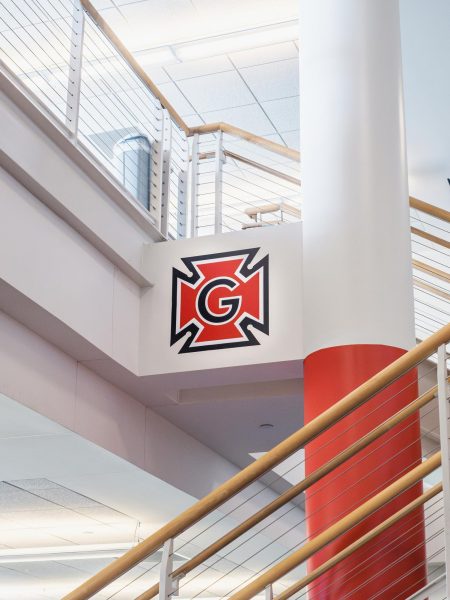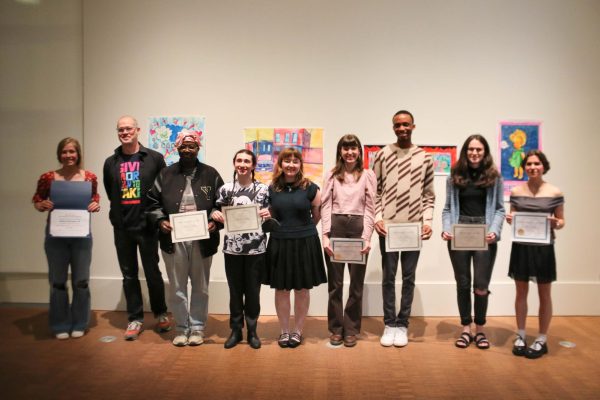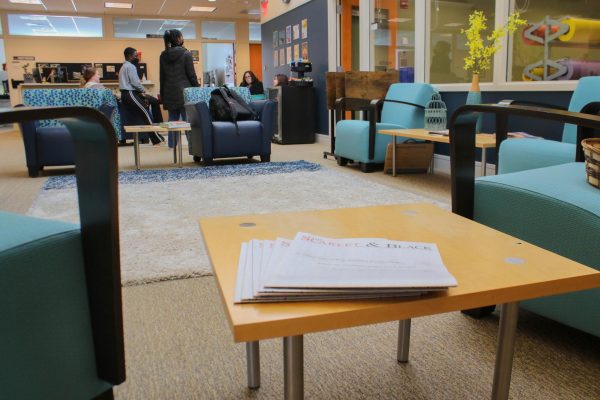Faces of Freesound: Olivia Rikabi `26 & Hayden Suarez-Davis `25
Olivia Rikabi `26 (left) and Hayden Suarez-Davis `25 (right) bring artists to campus and orchestrate production as Concerts Coordinators.
May 1, 2023
At most campus concerts and performances, Hayden Suarez-Davis `25 and Olivia Rikabi `26 are tucked away from the stage, often out of view of the audience, but they play a major role. When they seamlessly execute a show, controlling the audio and lights as well as managing set-up, Suarez-Davis and Rikabi may go unnoticed, but their work never does.
Over the past year, Grinnell Concerts Committee has hosted artists Divino Niño, redveil, Pictoria Vark and Saba. Other recent events on campus have included the International Student Organization’s Cultural Evening, Disco Harris, Gardner dances and a number of student-musician performances.
These events, which have each attracted hundreds of students, staff, faculty and community members, have only been possible because of the technical skills of Suarez-Davis and Rikabi, who serve as concert coordinators for Student Government Association.
For Suarez-Davis, his technical production experience began as a young kid when he would experiment with any audio equipment he could find. In high school, he narrowed his interest, helping with student-run theater productions and the audio production of daily school-wide morning announcements.
“The morning announcements finalized my interest in technical work because I realized this work is always new and exciting,” said Suarez-Davis. “We would be told the plan for the show five minutes beforehand, and then we would go straight into the announcements without rehearsal. If you messed up, that’s fine. It taught me that for anybody working behind the scenes, the most important skills are being easy to work with, problem solving and thinking on your feet.”
Rikabi’s introduction to the technical side of the industry came from their experience as a musician. In 2018, Rikabi created a post-punk psychedelic metal band, Fervor, with their friends. In addition to playing electric bass for the band, Rikabi took the lead on booking venues, landing numerous concerts in Brooklyn, New York. It wasn’t until 2020 that Rikabi became more serious about audio and lighting work, but they quickly became skilled enough to do freelance work for friends.
“I was definitely a musician first before I was behind the scenes,” said Rikabi. “Which I think has given me a leg up because I understand what it takes to have a good performance.”
This spring marks the third semester Suarez-Davis has been involved in working concerts, and he cites two spring 2022 experiences as being particularly formative.
“The first show that I ever worked was Magdalena Bay. It was the first time that the Gardner equipment had been used in two years. We had to do a lot of awesome troubleshooting, and they put on a phenomenal show,” said Suarez-Davis. “My best memory, and the thing that made me apply for the concert job this year, was working with Japanese Breakfast. Every single member of the band and technical team were exceedingly kind, and I still text them if I need advice about set up.”
For Suarez-Davis and Rikabi, their involvement in campus performances has been the most rewarding aspect of their college experience. Both feel that highlighting the work and personalities of the performers is their top priority. In fact, Suarez-Davis and Rikabi are content to keep themselves out of the spotlight as much as possible.
“I have really terrible social anxiety,” said Suarez-Davis. “It is remarkably difficult for me to talk to people my own age, and the nice thing about working events is that I can still participate in them while having my mind being taken off of the social aspect.”
“I think it’s nice to be unseen by the general public and seen by fellow musicians or music and tech aficionados,” said Rikabi. “It’s so much more meaningful and personal to receive positive feedback from someone who understands the work that we do.”
As Suarez-Davis and Rikabi plan for upcoming years of programming, their primary goal is to maximize the number of people they bring together.
“We see so many different types of people at our shows,” said Suarez-Davis. “Grinnell concerts are special because we are in an isolated location. I really like the fact that we keep shows open to the public free of cost, and it has been an effective way to include the broader community in campus events.”
Suarez-Davis and Rikabi have also been advocates for increasing accessibility to campus events, and they are looking to continue making improvements to the way performances operate.
“We’re trying to push for more concert accessibility because we want to accommodate those with disabilities or mobility concerns,” said Rikabi. “It would also be a major step to offer sign language interpreters at our big shows.”
Although Suarez-Davis and Rikabi may ultimately avoid careers in the entertainment industry for ethical concerns, they both want to continue using their technical expertise to support artists.
“I want to keep writing music, jamming with others, setting up and mixing shows,” said Rikabi.
Suarez-Davis says that one of the main things he has learned from his experience is the amount of work that goes into every performance.
He said, “Once you start working events, it gives you a lot more appreciation for the people who work behind the scenes. Keep it in mind when you’re watching a sports broadcast, or concert or theater production. There are a lot of really awesome people putting in a lot of really awesome work to make these things happen.”




























































